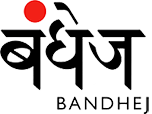
HANDCRAFTED, Sustainable Fashion

Spinning in PONDURU
 |
 |
 |
|
The farmers in this region now prefer growing the local varieties, as the soil and water there are conducive to their cultivation, over hybrid cotton, locally called Guntur cotton, which requires the repeated use of harmful pesticides, supported by a regular supply of water. While the hybrid, long-staple Guntur cotton is suitable for machine processing, the indigenous short-staple varieties are hardy and more suitable for hand processing for spinning. Ponduru is unique as all the processes from cotton to fabric are done manually. Cotton is first cleaned and combed using the jawbone of the valuga fish. This is a freshwater fish that has rows of tiny needle-like teeth and the dried jawbones are split in two and tied to a stick to be used as a tool.This unique ginning process helps to straighten out the fibres and remove unusable shorter fibres. The combed cotton is then pressed and rolled on a wooden plank with a rod which helps to remove the seeds. The select seeds are stored for the next planting and the remaining seeds are crushed to make a nutritious cattle feed. The cleaned cotton is then fluffed up with a bow. The ginned and carded cotton is now ready to be rolled into slivers for spinning. From cotton to making the sliver is a lengthy process, but when done by hand the cotton retains its natural lustre. |
 |
|
I visited Karagam and Kambakaya villages around Ponduru to observe the women spinning. There has been a lot of talk about handspinning becoming unviable, an opinion I do not share. Most of the people in these villages are farmers; some grow cotton. In their free time, the women clean, gin and card the cotton and make slivers for spinning. From one kilogram of raw cotton, after completing the entire pre-yarn process, they get 200 grams of clean cotton for making slivers and, eventually, 120 grams of spun yarn.
With no other work available locally, the women are happy to earn around Rs.80 per day. For finer quality counts, women can earn up to Rs.120 per day. This provides the much needed supplementary earnings for the family. Apart from the income, sitting in groups as they work on their charkha or cleaning the cotton, gives the women an opportunity to share their woes and joys.
|
 |
 |










